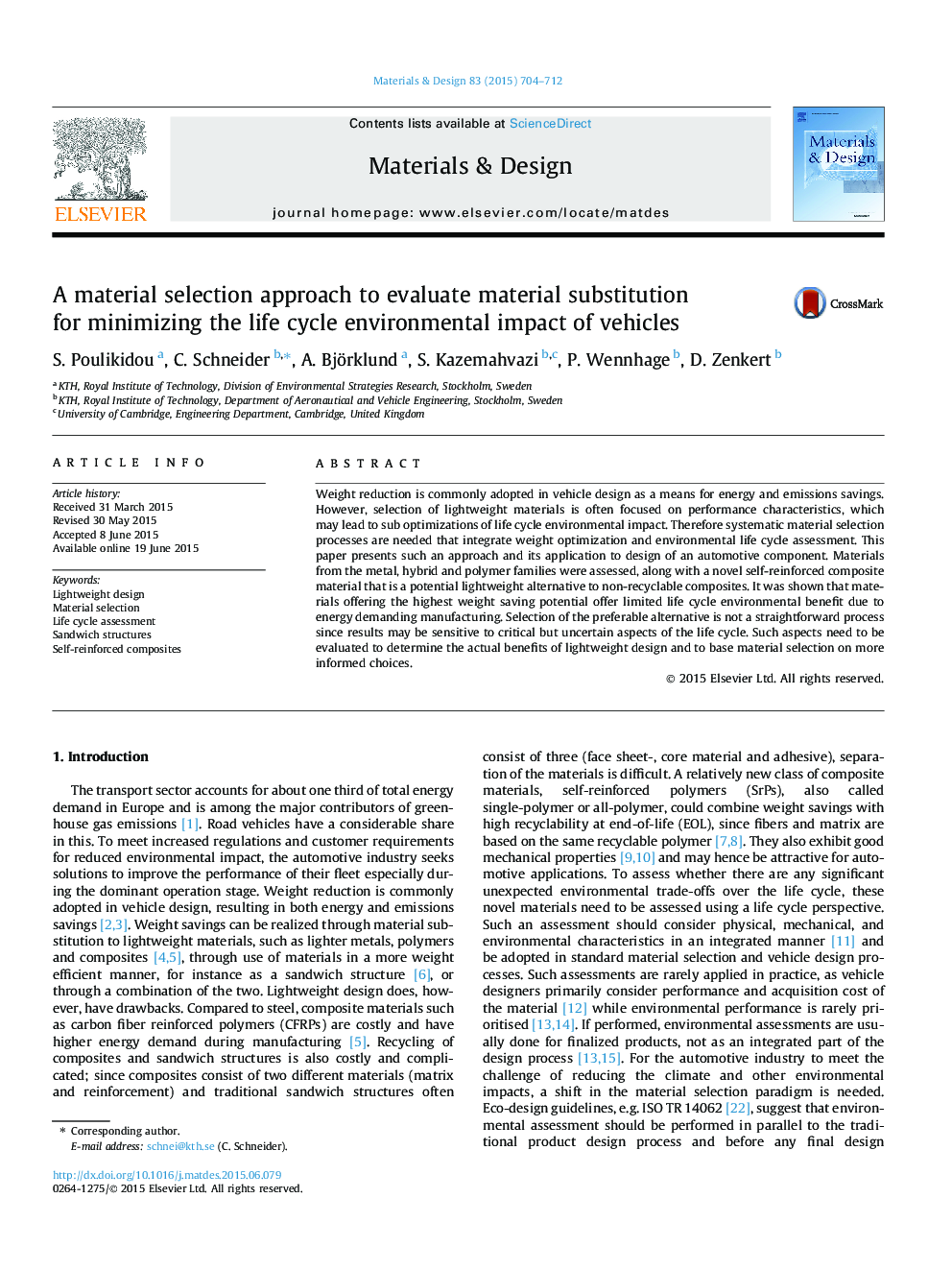| Article ID | Journal | Published Year | Pages | File Type |
|---|---|---|---|---|
| 828483 | Materials & Design | 2015 | 9 Pages |
•Life cycle based material selection approach for lightweight design.•The approach is applied on a truck roof sandwich panel.•Assessment of different material, use-phase and end-of-life alternatives.•Environmental assessment of self-reinforced polymer composites.
Weight reduction is commonly adopted in vehicle design as a means for energy and emissions savings. However, selection of lightweight materials is often focused on performance characteristics, which may lead to sub optimizations of life cycle environmental impact. Therefore systematic material selection processes are needed that integrate weight optimization and environmental life cycle assessment. This paper presents such an approach and its application to design of an automotive component. Materials from the metal, hybrid and polymer families were assessed, along with a novel self-reinforced composite material that is a potential lightweight alternative to non-recyclable composites. It was shown that materials offering the highest weight saving potential offer limited life cycle environmental benefit due to energy demanding manufacturing. Selection of the preferable alternative is not a straightforward process since results may be sensitive to critical but uncertain aspects of the life cycle. Such aspects need to be evaluated to determine the actual benefits of lightweight design and to base material selection on more informed choices.
Graphical abstractFigure optionsDownload full-size imageDownload as PowerPoint slide
